Can We Talk: Half of all suicide victims had no contact with the health system
MENTAL health experts have called on parents to have a conversation with their children about mental health and to facilitate the process The Sunday Telegraph is hosting a series of forums.
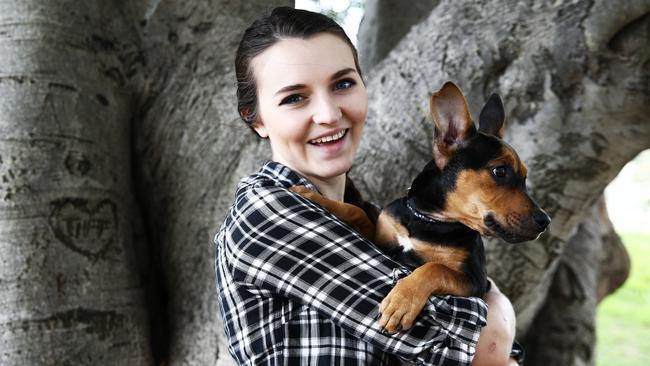
NSW
Don't miss out on the headlines from NSW. Followed categories will be added to My News.
ONE in two suicide victims never had contact with the healthcare system about their mental state.
But even if they had told a friend of their pain, three in four teenage confidantes won’t tell an adult about the problem because they think their friend would be “embarrassed”.
These troubling statistics, from Griffith University and the NSW Mental Health Commission, have prompted leading mental health experts to call on parents to have a conversation with their children about mental health.
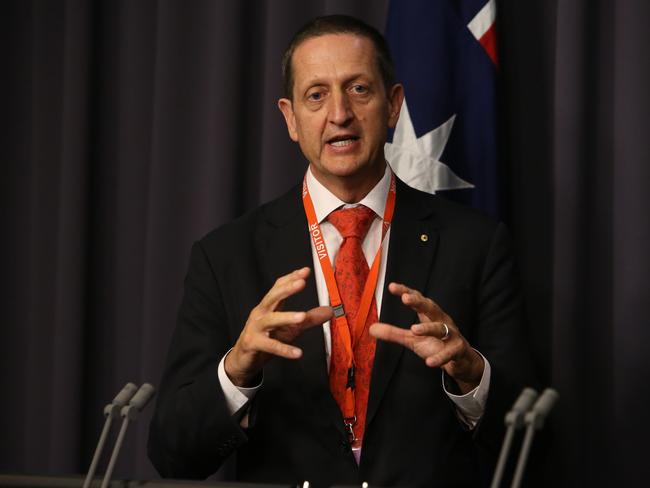
“Young people, and especially males, don’t rush to the health system,” Sydney’s Brain and Mind Centre co-director, Professor Ian Hickie, said.
“The only time young men would attend healthcare is when they have been run over or broken a bone on a football field. There is a need for parents to be engaged (about mental health).”
There were 362 suicide deaths of 15-24-year-olds in Australia in 2014, according to the Australian Bureau of Statistics.
To help break this cycle, The Sunday Telegraph, together with the University of Sydney, the NRL, headspace, Lifeline, Kids Helpline and other experts, is holding a series of forums, starting next week at Campbelltown.
REGISTER HERE FOR THE CAN WE TALK FORUMS
“You need to have this open community dialogue and forums like this help facilitate that dialogue,” Professor Hickie said.
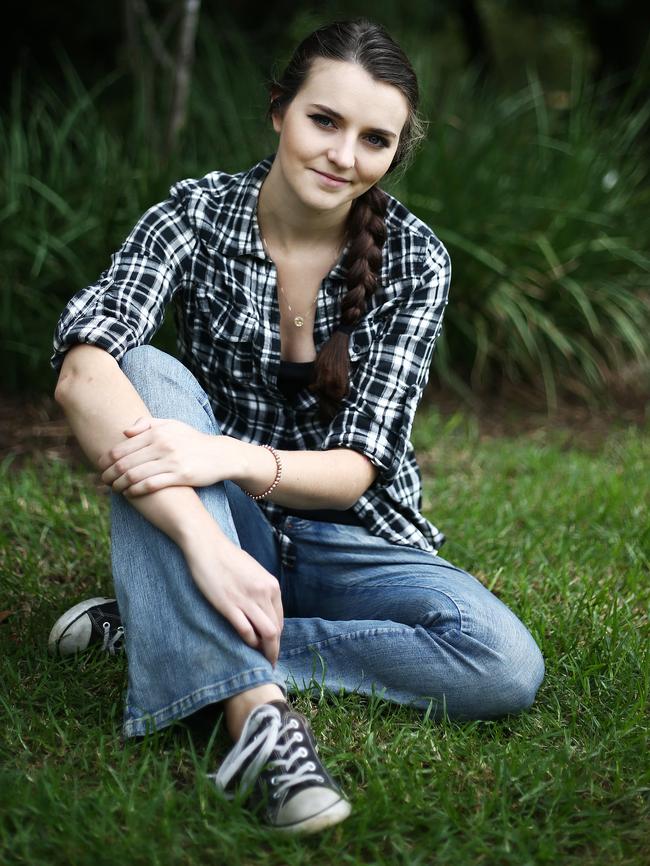
“The most important thing with suicide prevention, which has been shown in many trials, is doing something, taking a step.”
Professor of Youth Mental Health Patrick McGorry believes nine in 10 young people who commit suicide have spoken to someone about their emotional pain.
“People say: ‘I had no idea, I didn’t see it coming’ but when you drill down nearly all of those people were aware they were struggling,” the Orygen Youth Health Research Centre director said.
Rachael Laidler started experiencing mental health issues from age 10, but it wasn’t until six years later that she got help.
And, like half of all teens who are initially offered psychological treatment, she refused to get help.
“Every time my family took me to a counsellor I was unwilling, to the point where I was saying there is nothing wrong, I don’t want to talk,” the 23-year-old said.
“When I was 16 I tried to take my own life. That’s when I turned to my dad and said ‘I think something might be wrong’.”
The 23-year-old walked into a headspace centre three years ago and credits that choice with saving her from becoming a “homeless, unemployed alcoholic”.
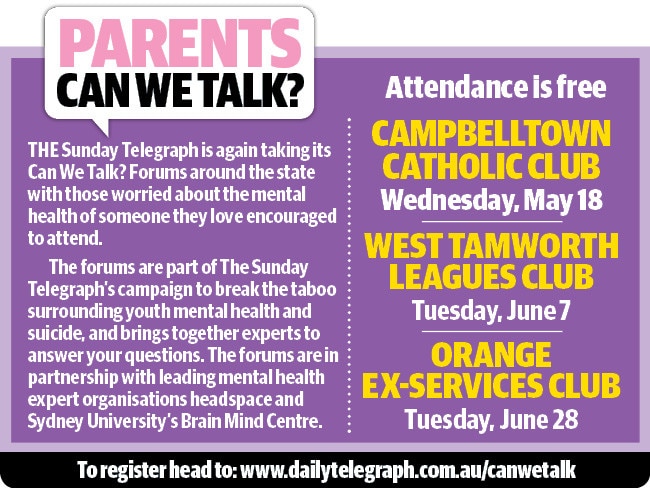
Facebook messages of hope could reach out after a tragedy
SOCIAL media could be used to help save the lives of troubled school students, if a new state government program takes off.
Facebook and youth mental health organisation headspace are in talks about having messages sent out to individual social media accounts following a suicide at that person’s school.
The messages would be tailored for parents, teachers and grieving students to help them deal with a sudden loss and to minimise the risk of copycat events.
The program would also counter the common occurrence of parents being unaware of tragedies that have happened in their child’s wider social groups, such as at school.
“Headspace have used our targeted advertising tools to promote messages in areas where there has been a recent suicide,” Facebook director of policy Mia Garlick told The Sunday Telegraph.
“We are definitely open to exploring something where we can promote messages ... from Facebook pages or our partner mental health pages, to people in the impacted area about how to have positive thoughts, where to reach out if they have concerns.”
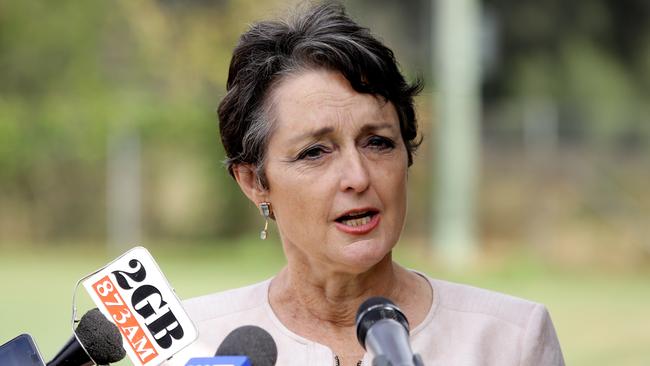
The proposal was made during the Mental Health and Social Media Summit earlier this month. Mental Health Minister Pru Goward, who hosted the summit at Parliament House, is also in talks with public and private schools about the program, which aims to reduce the spiralling number of youth suicides.
“It is not just the teacher who is shattered but the kids are as well, and there is a contagion effect. I have seen communities where it has happened,” Ms Goward said.
“We could have a Facebook-type arrangement be run to connect with kids. Then there is a possibility of picking up when kids were starting to say: ‘Oh well, if Sophie did it, my life is also worthless’.
“Schools are such an obvious catchment. We need to somehow create a social media vehicle that does not ruin the party online, by being the weird old aunty, but still ... creates a healthy conversation.”
Contact


